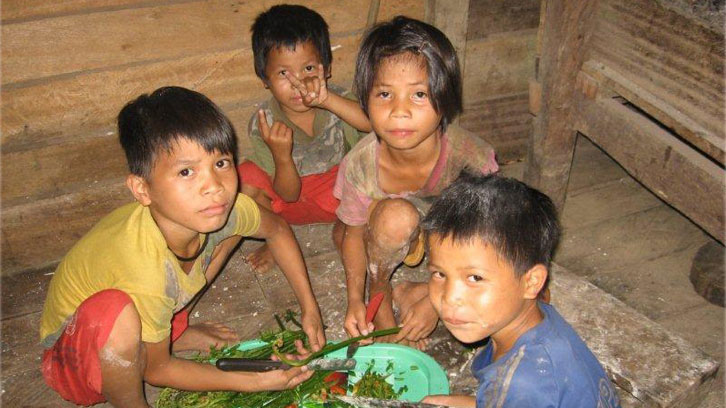Schooling, Local Knowledge and Working Memory: A Study among Three Contemporary Hunter-Gatherer Societies

Does knowledge learned in school supplement or replace the knowledge acquired through non-formal ways? The question has been addressed by several researchers, specifically researchers working with indigenous populations, who often display low schooling levels but high levels of local environmental knowledge. Although there is no complete agreement, most researchers coincide with the idea that schooling can be detrimental to the acquisition of other types of knowledge, since one cannot be in two places learning two things at once. The process of substitution of one type of knowledge for the other is even more pronounced if school programs are not contextualized. Few researchers, however, have analysed whether the different strategies of knowledge acquisition make use of different cognitive strategies.
|
|
||
| Photo by: Romain Duda. | ||
We had hypothesized that people with no written language would have better memory (as they rely more on it), but we found that the respondents’ ability to remember words was not related to their level of schooling. However, we also found that the way in which people managed to remember these words was related to schooling: people who had gone to school often remembered words in the same order as they had been read to them, while those who had not gone to school recalled more words that were interrelated (e.g., if they mentioned one fruit, other fruits were remembered from the list).
Our results suggest that while schooling seems to favour some organization strategies (in this case, repetition) this might come at the expense of other organization strategies (in this case, semantic organization). Formal education can improve the welfare of people, but if not contextualized it can also accelerate the erosion of local environmental knowledge and generate changes in the cognitive system.
Institute of Environmental Science and Technology (ICTA)
References
Reyes-García, Victoria; Pyhälä, Aili; Díaz-Reviriego, Isabel; Duda, Romain; Fernández-Llamazares, Álvaro; Gallois, Sandrine; Guèze, Maximilien; Napitupulu, Lucentezza. Schooling, Local Knowledge and Working Memory: A Study among Three Contemporary Hunter-Gatherer Societies. PLoS ONE. 2016, vol. 11, num. 1, e0145265. doi: 10.1371/journal.pone.0145265.


